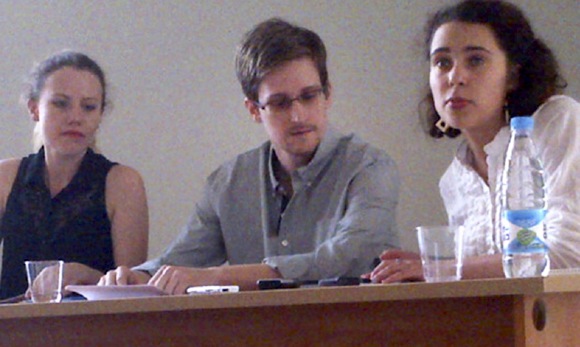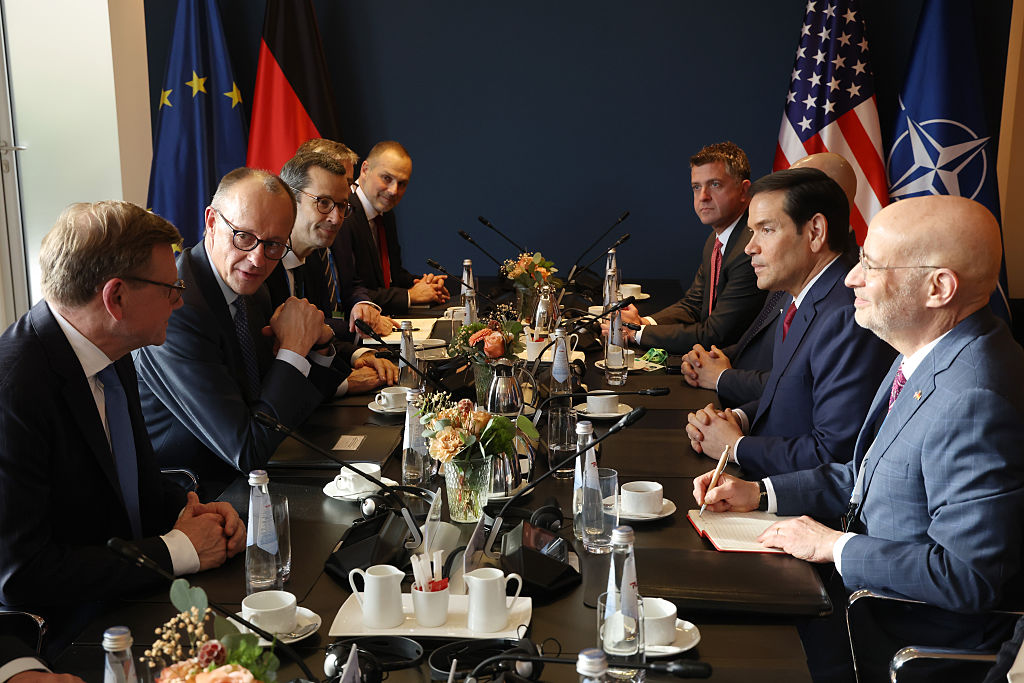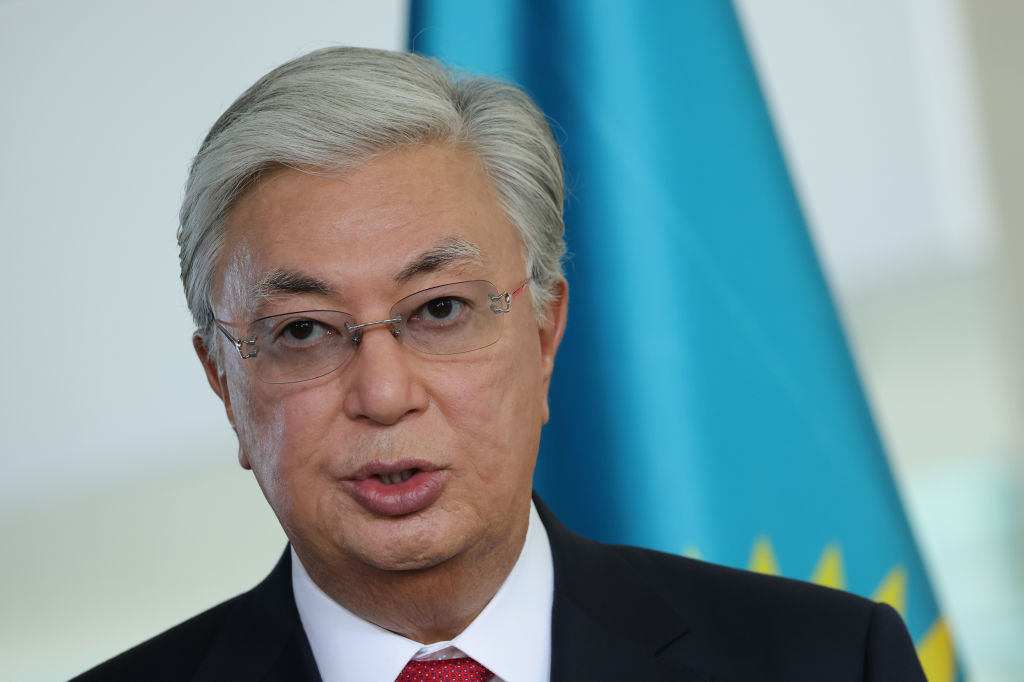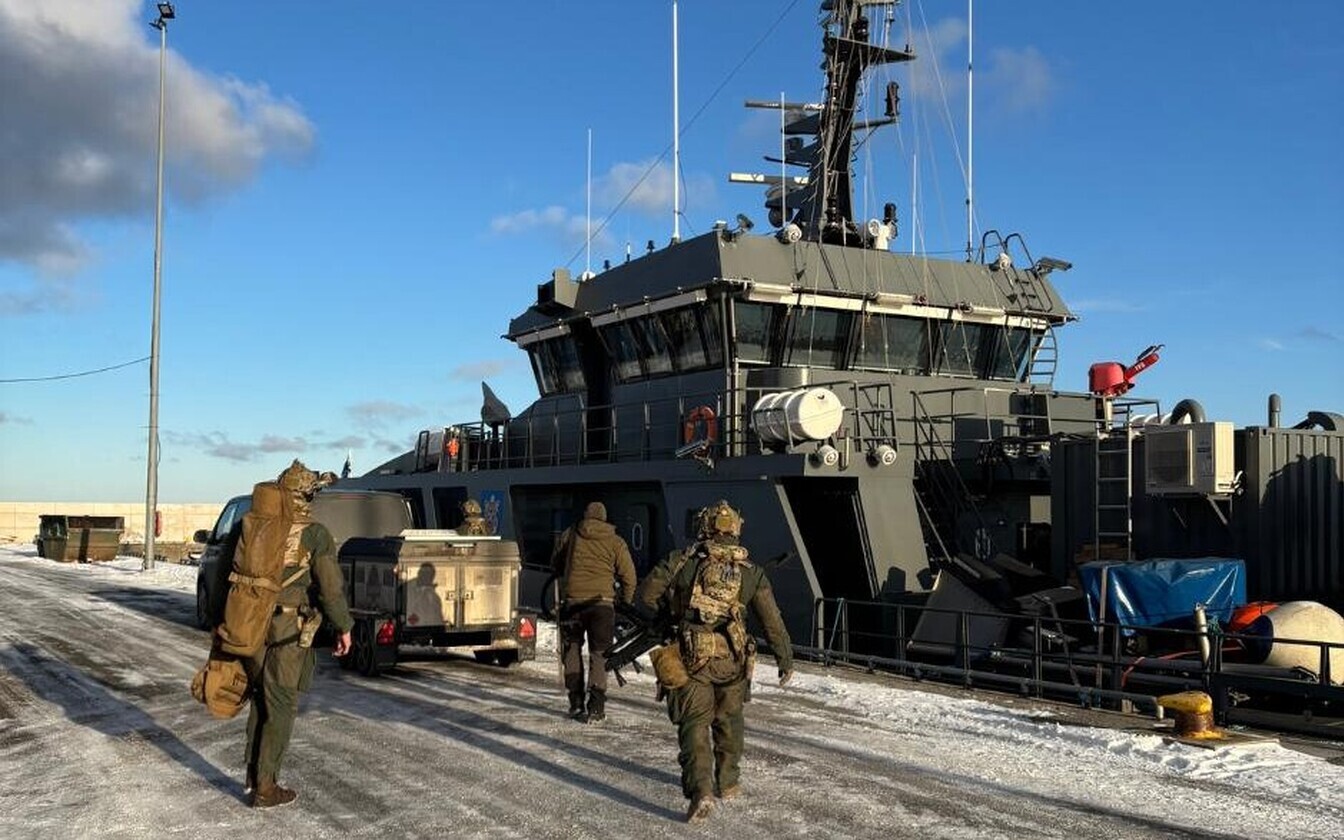
The Disappearing Sense of Talking to Putin
The Disappearing Sense of Talking to Putin
Last Friday night (July 12), United States President Barack Obama took a deep breath and called Russian President Vladimir Putin, perhaps assuming that talking is better than trading invectives via press secretaries. No solution for Syria was invented (and none had been expected), and Obama’s initiatives on nuclear arms control received the usual lukewarm response. But the message the White House really wanted to convey was Washington’s firm determination to bring before a US court Edward Snowden, who has been camping for three weeks in the Sheremetyevo airport departure zone (Kommersant, July 13). Putin promised nothing but enjoyed the moment—not because he likes talking to Obama (which he does not) but because making a US president call him is no small achievement. And it took only a small gesture of allowing Snowden to meet with representatives of international non-governmental organizations (NGO), which to the Obama administration amounts to granting him a “propaganda platform” (https://ria.ru/analytics/20130713/949464534.html).
Deporting Snowden to the US is certainly out of the question as it would amount to a loss of face for Moscow. Yet, much more infuriating for Putin is the possible expansion of the “Magnitsky list” (Moskovsky Komsomolets, July 12). Last week, a court in Moscow issued a verdict finding former lawyer Sergei Magnitsky, who died in a Russian prison due to lack of access to medical attention, guilty of tax evasion. The court also sentenced William Browder (in absentia) to nine years in prison. Putin had probably assumed that this juridical trick would provide a closure for the acutely disturbing international scandal (https://newtimes.ru/articles/detail/69141). In fact, the opposite effect has been achieved as the government of the United Kingdom confirmed that 60 Russian officials involved in the Magnitsky case would be treated with particular prejudice if they applied for a visa (Nezavisimaya Gazeta, July 10). Putin’s subordinates are worried that other European states will follow suit and that a “Navalny list” might be introduced after the court verdict next week expected to convict oppositionist blogger Alexei Navalny on trumped-up charges—or indeed a “Pussy Riot list” (female punk rock group sentenced to several years in prison over an anti-Putin song they performed in the middle of a mass at a Moscow Orthodox Church) and on top of all that a “Khodorkovsky list” (former Yukos CEO Mikhail Khodorkovsky, serving several prison sentences).
Instead of alleviating these worries, Putin prefers to play on them and to connect with those 77 percent of Russians who tend to think (and 32 percent of which who are absolutely sure) that the US seeks to exploit Russia’s problems in order to reduce it to a power of no significance other than as a supplier of raw materials (https://www.levada.ru/11-07-2013/ustanovki-rossiyan-i-ugrozy-strane). However, a different and more profound trend exists in public opinion that has been identified by the Center for Strategic Research, which had accurately predicted an explosion of protests in winter 2011/2012 and now warns about the growth of alarmist expectations to the level of 65 percent throughout Russia and 84 percent in Moscow (Kommersant, July 12). Experts assert that Putin’s approval rating has stabilized as more than a half of Russians believe that order can be enforced only by a “firm hand”—his trademark—even if only 29 percent of respondents (and 21 percent in Moscow) are ready to vote for him (https://www.levada.ru/12-07-2013/elektoralnye-reitingi-putina-i-er-v-moskve). They also argue that protest activity is shifting from Moscow, where a feeling of disappointment has arrived, to the regional capitals like Novosibirsk or Yaroslavl, where angst over federal arrogance and neglect is on the rise (Vedomosti, July 12).
This angst and the rising alarmist expectations translate partly into an urge to change the corrupt political order, but more so, they feed aggressiveness focused on migrants from Central Asia and the Caucasus. Even in cosmopolitan Moscow, the inflow of these guest workers has, for the first time, made it to the top of the list of perceived social problems in opinion polls (https://www.levada.ru/11-07-2013/sotsialnye-problemy-i-grazhdanskoe-uchastie-moskvichei). Last week, the small town Pugachyov in the Saratov oblast made headlines when a murder in a bar brawl caused mass rallies against the tiny but close-knit Chechen community residing there (Novaya Gazeta, July 12). Terrorist attacks and counter-insurgency operations in the North Caucasus continue in the usual deadly way, but it is the policy of pouring money from the federal budget into such “black holes” as the extravagant construction projects in Grozny that feeds anger in deeply depressed provincial towns across Russia (https://www.gazeta.ru/comments/2013/06/28_a_5397661.shtml). In fact, this policy has been curtailed as financial flows are being diverted to completing the construction of stadiums in Sochi ahead of the 2014 Winter Olympic Games, which have become the pivotal political priority and paramount security concern (Nezavisimaya Gazeta, July 5).
This preoccupation with a single event, which is supposed to constitute a great personal triumph for Putin, sets a very short horizon for strategic planning. Meanwhile, mainstream economists paint an increasingly gloomy picture of accumulating corporate and regional debts and aggravating under-investment (https://www.gazeta.ru/comments/2013/07/10_x_5420369.shtml). Putin firmly refuses to contemplate the prospect of cuts in budget allocations either for social programs or for the massive rearmament program, but as sluggish economic growth slows to stagnation, revenues are fast shrinking (Kommersant-FM, July 8). The only good news for the Russian economy was the promise of US Federal Reserve Chairman Ben Bernanke to continue with the course of financial stimulus, which has propped up oil prices and triggered a rally on the Moscow stock exchange long dominated by “bears” (Nezavisimaya Gazeta, July 12). Putin can hardly rejoice with this evidence of external control over Russian affairs, since none of his statements could produce a similar effect.
Such plain economic propositions as the diminishing returns from the gigantic state-controlled corporations and the deep rot of corruption in the structures of state control go against Putin’s unshakable convictions about how Russia should be ruled, and so are ignored rather than questioned. Putin used to be a good listener, but now the background of special training is supplanted by the experience of supreme authority, and so he exhibits the typical habit of ageing authoritarian leaders of listening only to himself. Talking to him is no longer a process of reasoning toward a sensible conclusion or bargaining aimed at a mutually acceptable compromise but merely an act of confirming his wisdom and polishing his greatness. Snowden is mildly entertaining with his ability to cause embarrassment for the US government, but he has value only insofar as Putin can demonstrate that his whim is the only thing that matters.


